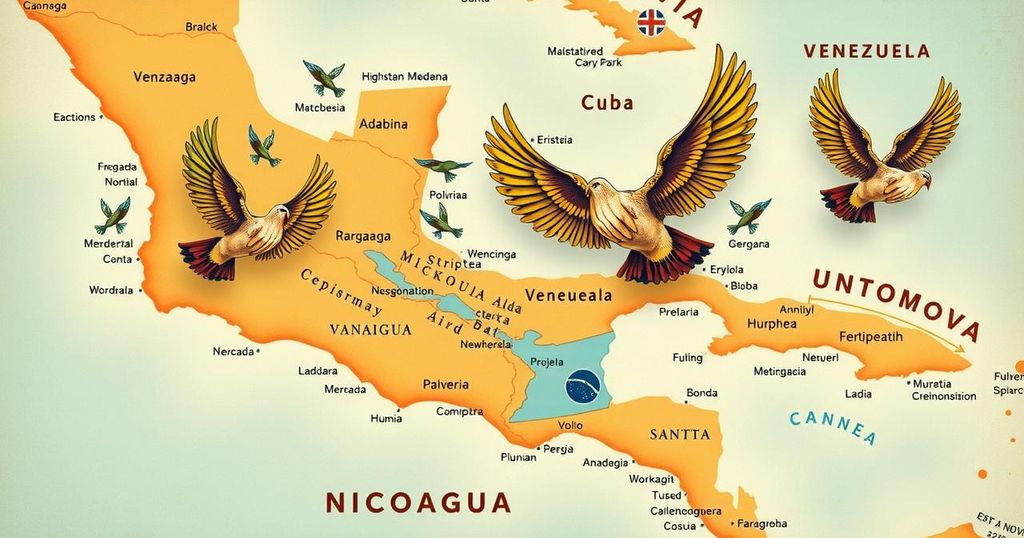The United States has drastically reduced foreign aid aimed at promoting democracy in Nicaragua, Cuba, and Venezuela, deeming these initiatives not in the national interest. This led to the cancellation of nearly all programs run by the International Republican Institute (IRI), raising concerns about its sustainability and impacting democracy promotion globally. The reductions come amid increasing oppression of political opposition and religious groups in these countries.
The United States has recently reduced its foreign aid focused on promoting democracy in Nicaragua, Cuba, and Venezuela, as they are deemed to have authoritarian regimes. The State Department’s assessment deemed these initiatives as not aligning with the national interests of the U.S., leading to significant funding cuts for programs aiding political prisoners and opposition groups.
The decision has resulted in the cancellation of 92 out of 95 programs previously operated by the International Republican Institute (IRI) in these nations. While three remaining programs focused on Venezuela remain on hold following a temporary suspension of funding initiated by an executive order, the future of IRI remains in jeopardy.
IRI’s leaders expressed deep concern in discussions with congressional representatives, indicating that the ongoing funding absence would likely jeopardize the organization’s existence within weeks. IRI President Daniel Twining emphasized that reducing democracy promotion initiatives would only empower authoritarian rulers in these nations.
Moreover, 175 other IRI programs globally have also become precarious, contingent upon funding from the National Endowment for Democracy (NED), which has encountered access issues with its allocated government funds. The National Democratic Institute (NDI) faces a similar predicament, with nearly 100 programs losing funding and only one program remaining operational in Venezuela.
Consequently, numerous staff members across IRI, NED, and NDI have been placed on leave or have lost their positions entirely. These aid reductions occur against a backdrop of increasing suppression of political opposition and religious freedom in Nicaragua, where the government of President Daniel Ortega has aggressively targeted the Catholic Church and expelled religious organizations.
The United States’ decision to cut foreign aid for democracy promotion in Nicaragua, Cuba, and Venezuela marks a significant shift in its foreign policy approach. This reduction not only jeopardizes the support for political prisoners and opposition groups in these authoritarian regimes but also threatens the future viability of key organizations such as the IRI and NDI. As these cuts coincide with rising suppression in Nicaragua, the implications for democracy and human rights in the region are concerning.
Original Source: catholicvote.org




